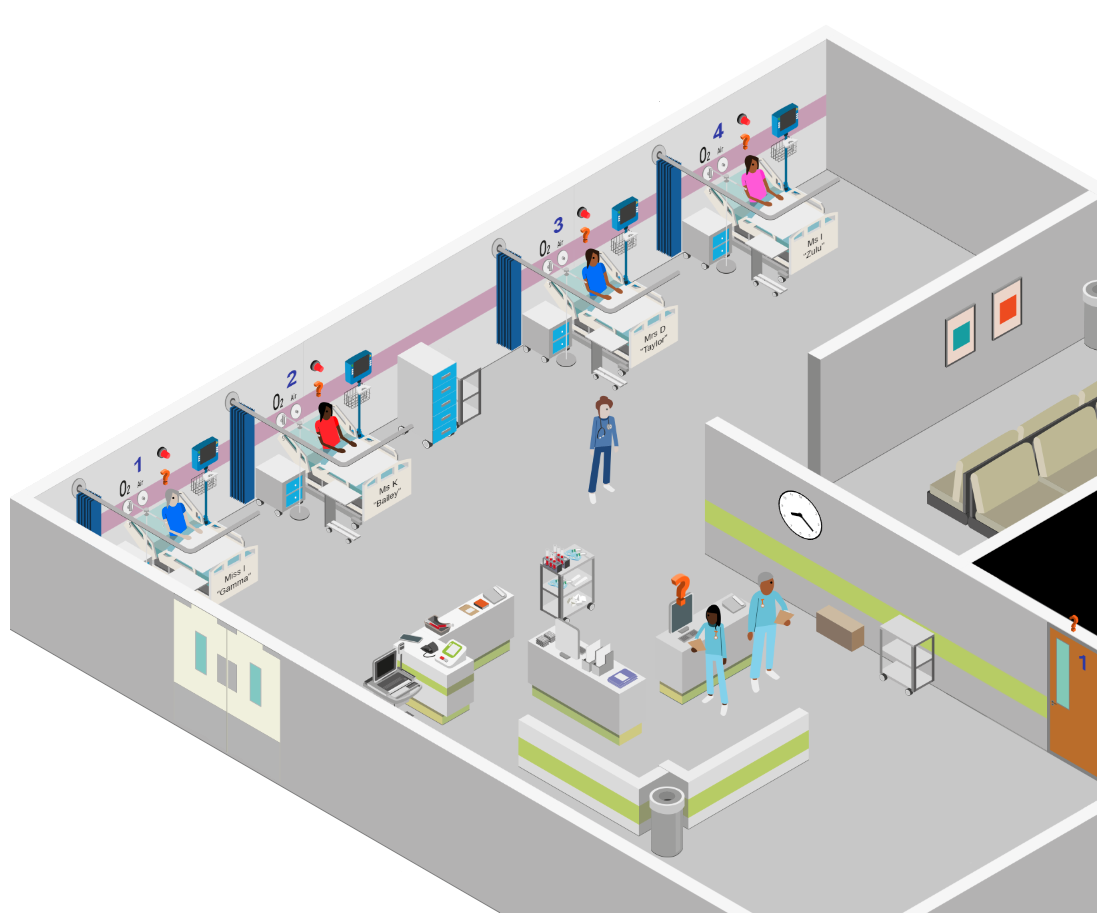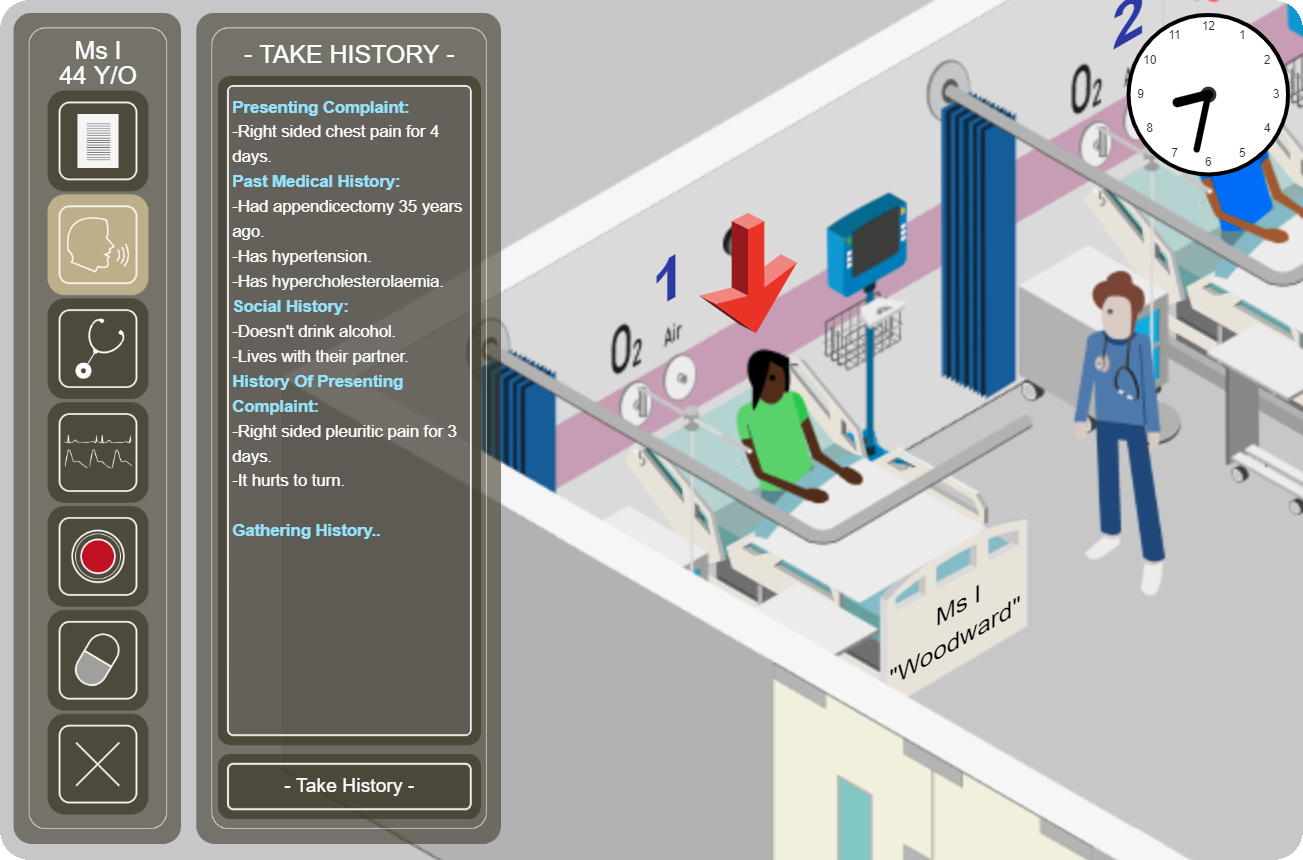Why Admission?
The field of medical simulation aims to improve medical trainees' ability to look after patients through practice in a safe and controlled environment, in which errors do not lead to real patient harm.
Its growing importance is well recognised and increasing emphasis is being placed on simulation in UK post-graduate medical training.
It is well recognised from non-medical research that multitasking significantly reduces task performance, so it has long been thought that managing greater numbers of patients simultaneously should led to a higher risk of medical error.
Whilst this effect has been difficult to study in real-world medical practice, increased error with interruption and multitasking has been demonstrated.
Admission in Short
With “Admission”, every shift is different. New patients are generated for each game with completely random statistics (e.g. age, medical history), and players must work against the clock to diagnose and treat them before they deteriorate.
Players will face time pressure, competing demands for their attention, and diagnostic uncertainty. By simulating these pressures in a safe environment, players can learn how to manage their time and attention during a shift. At the end of each shift, they are scored and given detailed feedback about how they can improve.
In short, “Admission” helps prepare you for life on the ward.

| Appendicitis | Bacterial Meningitis | Costochondritis | Giant Cell Arteritis |
| Heart Failure | Migraine | Myocardial Infarction | Pneumonia |
| Pulmonary Embolism | Pyelonephritis | Stroke | Subarachnoid Haemorrhage |
| Viral Gastroenteritis | Viral Meningitis |

Testimonials
Some comments from testing at Bournemouth Royal Hospital, Poole Hospital, Salisbury Hospital and Southampton Hospital conducted by consultants and doctors.
“It gave me insight into how frustrated I can get when I can't work out what it is I need to do.”
“Really liked the graphics, reminiscent of theme hospital.”
“I would use this even now as a consultant.”
"Feedback is clear and well presented."
“Well presented and enjoyable."
"Tutorial means it's clear to use."
